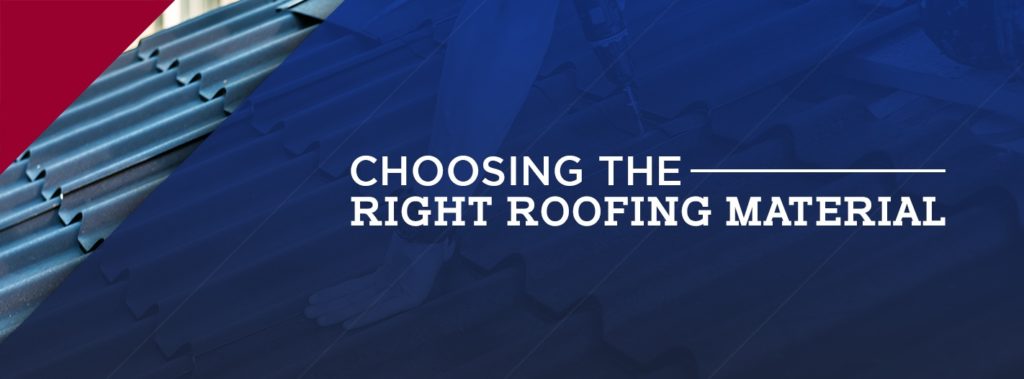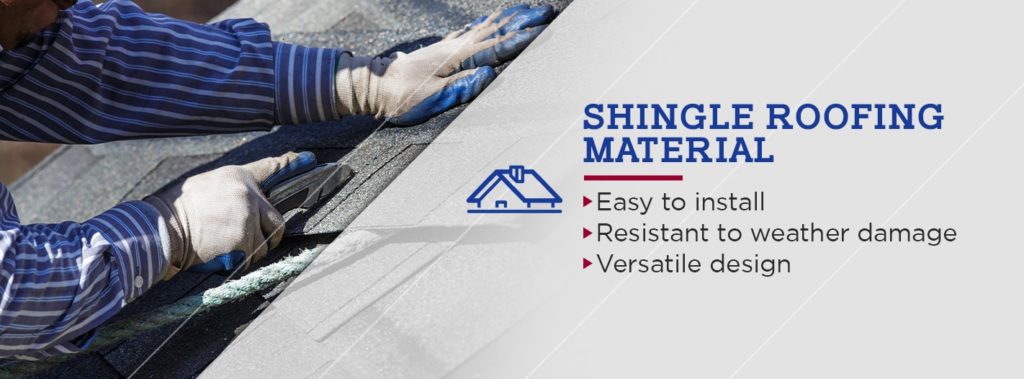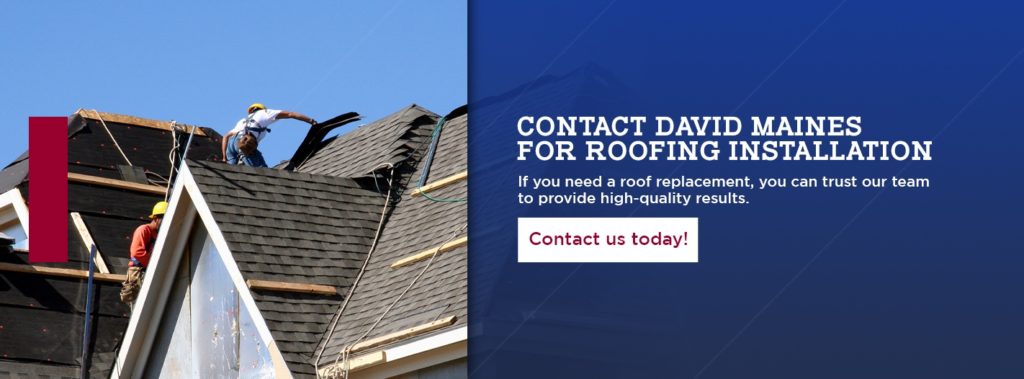
If you need a new roof for your business in the Mid-Atlantic, you want to find the best commercial roofing material. Your roof should enhance your property’s aesthetic and withstand local weather conditions. Explore the following roofing materials for commercial buildings so you can discover the right one for your company.
Built-Up Roofing Material
Built-up roofing can accommodate commercial buildings with flat or low-pitched roofs. This style features several layers of roofing felt asphalt that roofing contractors heat and apply to the property. They overlap these pieces to form a thick, protective barrier. Then, they embed a layer of finely crushed stone to create an impenetrable roof.
A built-up roof can add value to your property with the following benefits:
- Resistant to weather damage: The multiple layers of built-up roofing can protect your commercial building against direct sunlight and heavy winds.
- Fewer leaks: A high-quality built-up roof installed by a professional roofing contractor is practically waterproof, allowing fewer leaks inside.
- Low maintenance: Due to its many protective layers, built-up roofing doesn’t require much maintenance, repairs or replacements.
- Withstands pressure from heavy objects: Since this material is suitable for flat or low-pitched roofs, it can withstand bulky fixtures, such as satellites and HVAC systems.
- Safe for walking: A built-up roof can withstand pressure from foot traffic. Even when maintenance workers walk on top of it to fix your HVAC system and satellite as needed, your roof will maintain its integrity.
EPDM/Rubber Roofing Material
Ethylene propylene diene monomer (EPDM), also known as rubber roofing, is a type of membrane roofing suitable for flat or low-pitched roofs. Installers apply this material in large sheets that limit the seams where water can leak inside.
Here are some of the specific benefits of rubber roofing:
- Easy to install: Since an EPDM roof only has one layer, it’s relatively easy to install, allowing you to save time and money on your roofing replacement.
- Resistant to weather damage: The synthetic rubber material resists scratches and scuffs and can withstand the intense ultraviolet (UV) rays from the sun.
- Fewer leaks: The large sheets limit the amount of water that can infiltrate your property, so your roof can better withstand moisture damage and leaks.
- Low maintenance: EPDM roofing is easy to maintain because of its durability and single-layer configuration.
- Energy efficient: Rubber roofing reflects solar heat and helps lower your property’s temperature in the summer. This feature enables you to save money on your energy bills, which tend to add up when you have a large commercial space.
- Versatile design: Most of the time, EPDM roofing is black, but it’s also available in white. A roofing manufacturer can also shape it into various widths and thicknesses to accommodate your commercial building’s size and climate needs.
Metal Roofing Material
Metal roofing is a durable, long-lasting option for your low- or high-pitched commercial roof. It’s available in various colors, textures and configurations, depending on your style and maintenance preferences. This material is usually either steel, aluminum, copper or stainless steel.
A metal roof provides the following benefits for commercial buildings:
- Easy to install: Since metal is lightweight, it’s usually convenient to install, saving you money and time installing your new roof.
- Long lifespan: With the proper maintenance, metal roofing can last nearly half a century before you’ll need to replace it again.
- Resistant to weather damage: A metal roof can withstand heavy winds, rain, snow, fire and impact damage from hail and other debris.
- Low maintenance: After you have your metal roofing installed, this durable material doesn’t require much maintenance during its lifespan.
- Energy-efficient: Metal roofs can reflect solar heat and keep your commercial space cool all year long. As a result, you can expect to reduce your energy expenses each month, especially over the summer.
- Versatile design: A metal gives you plenty of color, texture and style options for a unique roof on your commercial building.
- Eco-friendly: Metal is a recyclable material, saving natural resources and reducing waste.

Shingle Roofing Material
Shingle roofing is excellent for commercial buildings with steep roofs. This material is available in many colors, textures and shapes to accommodate your property’s architectural style.
Here are some of the advantages of shingle roofing:
- Easy to install: Roofing contractors can install shingles on top of your commercial building quickly so you can get back to business as soon as possible.
- Resistant to weather damage: Depending on the material you choose, shingles usually withstand UV rays, fire and unpleasant weather conditions.
- Versatile design: Shingles come in several different types of materials that each have unique colors and textures. These options can highlight your company’s brand and make your property stand out among the other commercial buildings in the area.
Slate Roofing Material
Slate roofing is a hard metamorphic rock that’s both beautiful and durable, making it an excellent option for your commercial building. It can accommodate any commercial roof’s pitch.
A slate roof can add value to your commercial property in the following ways:
- Long lifespan: A quality slate roof installed by a reliable roofing contractor can last nearly a hundred years on your property. The slate itself can last much longer, but the flashing and underlayment may need a replacement after a century.
- Resistant to weather damage: Your slate roof can protect your commercial property from local weather conditions. Since this material is hard rock, it can withstand UV rays, rain and snow. It also sheds water and snow, absorbing minimal moisture, and its weight allows it to stay in place during heavy winds.
- Visually appealing: Natural slate is available in various colors, such as brown, grey, purple, black, green and red. Discuss your design options with your roofing contractor to find a product that gives your commercial building a high-end aesthetic.
- Eco-friendly: Since slate roofing lasts a long time, it rarely needs repairs or replacement. This reduction in repairs and replacements cuts down production waste and preserves natural resources. You can also recycle slate tiles and use them for other projects.
Tile Roofing Material
Tile roofing is a durable, aesthetically pleasing option for your commercial building with a steep slope. It usually accommodates classic architectural styles that feature an old-world charm.
Here are some of the unique benefits of tile roofing:
- Long lifespan: Depending on the specific material and installation quality, tile roofing can last up to a century on your commercial property.
- Durability: Tile roofs can withstand most wear and tear, including heavy winds, rot, moisture, insects and fire.
- Low maintenance: Since this material lasts a long time and is resistant to most weather conditions, it doesn’t require much maintenance.
- Visually appealing: Roof tiles are available in various colors, textures and styles to enhance your commercial space’s aesthetic. Mission and Spanish tiles have a curvy design, while shingle and French ones are flat. Consult your roofing contractor about which style would work best with your property.
Contact David Maines for Roofing Installation
If you need a roof replacement, you can trust our team to provide high-quality results. At David Maines & Associates, Inc., we’ve gained a reputation as a reliable and efficient roofing company throughout the Mid-Atlantic. For more information about our commercial roofing materials, reach out to us online or call 717-248-3070.
Share
